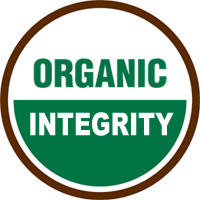Keeping Organic Strong
 How you can influence organic regulations
How you can influence organic regulations
As we raise our voices in defense of the integrity of the organic label, it is important to bear in mind the differences between organic farming and conventional, chemical-intensive agriculture. Organic agriculture embodies an ecological approach to farming that focuses on feeding the soil and growing naturally healthy crops. Conventional, chemical-intensive agriculture depends on toxic chemicals that poison the soil, as well as the air, water, and consumers of the crops.
Organic farmers can use natural pesticides, after exhausting other strategies including crop rotation, cultural practices, beneficial species, etc. However, synthetic chemicals can only be used in organic farming and processing if they are approved by the USDA National Organic Standards Board (NOSB), a process that includes a detailed checklist of possible health and environmental impacts and considers the need for the chemical. In contrast, the process for registering pesticides for crops explicitly does not consider the need for the chemical.
Currently, about 50 entries are included on the “National List” of allowable synthetic materials. These include alcohols used as disinfectants, soap-based insecticides, newspaper weed barriers, and vitamins. On the other hand, there are tens of thousands of synthetic chemicals, including over 200 pesticide “active ingredients,” approved for use in conventional systems, not to mention chemical fertilizers, genetically modified organisms (GMOs), antibiotics, sewage sludge and irradiation.
Take Action: Making Your Voice Heard
The organic regulatory process provides numerous opportunities for the public to weigh in on what is allowable in organic production. USDA maintains a National List, set by the NOSB, of the synthetic substances that may be used and the non-synthetic substances that may not be used in organic production and handling. The Organic Foods Production Act (OFPA) and NOP regulations provide for the sunsetting of listed substances every five years and relies on public comment in evaluating their continuing uses. The public may also file a petition to amend the National List. In both cases, sunset and petition, the NOSB is authorized by OFPA to determine a substance’s status.
Recent NOSB Recommendations (October 2010 meeting)
The following recommendations were passed by the NOSB at its most recent meeting. It is important for the public to follow up with USDA’s National Organic Program (NOP) to officially adopt (or reject) the recommendations of the NOSB. Email NOP at [email protected]. For more information, download the meeting agenda and recommendations.
- Apiculture/organic honey rules.
- Organic hops in beer.
- Ban on engineered nanomaterials.
- Sunset review process update.
Upcoming NOSB Issues (April 2011 meeting)
The following issues are expected to be voted on by the NOSB at its upcoming meeting, April 26-29, 2011. The NOP will open a 30-day written comment period prior to the meeting. Individuals may also request to make an oral presentation before the Board. Prior to the comment period, email NOP at [email protected], but be sure to submit your comments during the 30-day window to be a part of the public record.
- Corn steep liquor.
- Animal welfare - stocking rates.
- Sulfites in organic wine.
- Percentage organic labeling.








